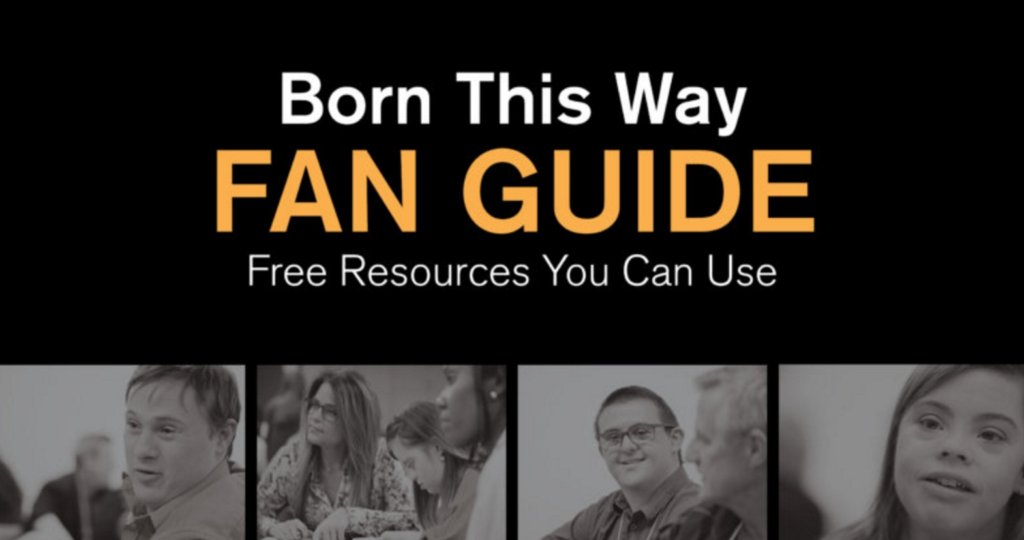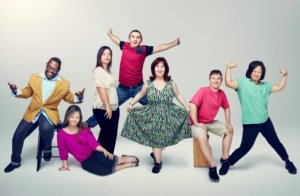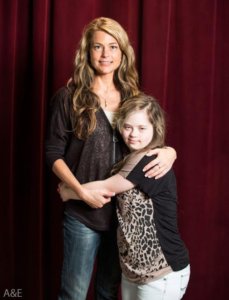Born This Way Nominated for Six 2017 Emmy Awards including Outstanding Unstructured Reality Program
Rockville, Md., July 18 – For the cast of Emmy award-winning Born This Way and others with disabilities, acquiring a sense of financial stability is important in being able to live an independent life.
Born This Way, a reality TV show just nominated for six Emmy awards, including again for the 2017 Emmy Award for Outstanding Unstructured Reality Program, which the show won in 2016, is centered on seven young adults with Down syndrome living their day-to-day lives, all while pursuing their passions, following their dreams and defying stigmas. In the final episode of season three, Megan and her mother Kris learn about opening an A Better Life Experience (ABLE) account. ABLE accounts are savings accounts designed specifically for people with disabilities and their families to aid them in financial independence.
In December of 2014, President Barack Obama signed the ABLE Act into law. The passage of this act provides tax-advantaged savings accounts for people with disabilities and their families.
Expanding Opportunities
Through ABLEnow, a person with a disability can save up to 14,000 dollars a year without compromising their benefits for qualified disability expenses such as educational costs, housing expenditures and payment for transportation. This applies to people with any type of disability, not just Down syndrome. However, the law only applies to individuals who developed their disability before turning 26 years old. Thus, the law is especially important to people with developmental disabilities including Down syndrome, Autism, Spina Bifida and Cerebral Palsy.
“We’re honored to partner with A&E’s Born This Way to spread the word about ABLEnow and focus on ability instead of disability,” said Mary Morris, CEO of Virginia529, the agency that administers ABLEnow. “Our ABLEnow program empowers people to increase their independence, improve their financial security and achieve a better quality of life. We share this passion with A&E, which gives a voice to people with disabilities, their families and advocates through this uplifting series.”
“Not a Charity Case”
In the show, Scott from ABLEnow helps Megan and Kris sort out how a person with a disability can save money and not compromise their benefits. Megan’s business Megology is doing well and an ABLEnow account can help her save the money that she earns. In the past, an individual with a disability needing benefits such as Medicaid or SSI could save no more than 2,000 dollars.
“It’s just not far that today I can go out to the store and spend money and save as much as I want and you can’t,” Scott from ABLEnow says. “You should have the same rights as anybody else does.”
“It is not a parent’s dream for their children to live in poverty just to qualify for benefits,” Kris says. “We want them to be able to earn a livable wage and not have to run the risk of their finances being devastated because they have a medical emergency and they don’t have insurance.”
Megan says that she is “not a charity case.” An ABLE account can be the first stepping-stone to financial independence for her, if she is given the financial guidance and tools she needs to succeed.
The passage of the Americans with Disabilities Act opened many doors for individuals with disabilities, but for many, the financial inclusion in banking remained closed. While ABLE accounts can aid people with disabilities in their independence, family and friends are more likely to take on an individual with a disability’s financial responsibilities.
Unique Financial Obstacles
“Americans with disabilities face unique financial obstacles and challenges that separate them from their peers without disabilities,” according to Michael Morris, director of the National Disability institute (NDI).
In April of 2017, NDI released “Banking Status And Financial Behaviors.” which discusses banking and under-banking habits among people with disabilities. For instance, 40 percent of those who are banked have checking accounts, but lack savings accounts. Just 40 percent of households with disabilities save for unforeseen expenses, as compared to 61 percent of other households.
This season Born This Way has also educated viewers about a variety of issues around disability. Episodes have tackled complex issues such as self-determination for people with disabilities in healthcare choices, the lack of employment opportunities for all people with disabilities, sex education for young adults with developmental and intellectual disabilities and the importance of inclusive education for all. Find a free resource guide on RespectAbility’s website.
Watch the Season Finale on A&E Network at 10:00 p.m. and catch the entire season online: http://www.aetv.com/shows/born-this-way.
Join RespectAbility for a live Twitter chat during tonight’s show using #BornThisWay and #BTWchat.
ABLE Resources
The ABLE National Resource Center (ANRC) is a collaborative of more than 20 of the nation’s largest disability organizations. The ANRC’s goal is to provide consistent, reliable information concerning the benefits of an ABLE account. In addition, the ANRC aims to educate individuals with disabilities and their families, state government and legislatures, financial service companies and financial planners and attorneys – who focus on trust and estate planning – about ABLE’s potential positive impact on the lives of millions of Americans with disabilities. The interactive website offers educational videos, information resources and a tool to compare up to three state ABLE programs in terms of costs and program features. The website is on pace to have more than one million visitors in 2017. It is the most comprehensive, independent source of information about ABLE accounts and programs.
- ABLEnow website: https://www.able-now.com/
- ABLE National Resource Center Brochure: http://www.ablenrc.org/sites/default/files/docs/resource/ABLE-Report-2017.pdf
- Five Things to Know: http://www.ablenrc.org/sites/default/files/docs/resource/5%20Things%20to%20Know%20about%20ABLE%28ANRC%20Final%29.pdf
- Choosing the Right ABLE Program: http://www.ablenrc.org/sites/default/files/docs/resource/Choosing%20the%20Right%20ABLE%20Program.pdf

Born This Way Fan Guide
Earlier, RespectAbility released a Born This Way Fan Guide with free resources for a variety of individuals with disabilities. The guide includes free tools, contacts, information and services around:
- Job Seekers with Disabilities
- Employers Embracing Employees with Disabilities
- Education Resources on Disability Issues
- Policy Makers
- Entertainment Professionals
- Sex Education
- Ending the School-to-Prison Pipeline
- Inclusive Philanthropy
For more information visit www.RespectAbility.org or email LaurenA@RespectAbility.org.
RespectAbility Fellow Stephanie Flynt provided additional research for this piece.










This is great and all, but how does someone get a person like Scott to come visit them and discuss their personal situation with them? I am a client with the San Diego Regional Center and have contacted both CalABLE and ABLEnow regarding speaking with a specialist one-on-one or hiring a personal advisor who is knowledgeable regarding these accounts. Nobody has had any help for me at all. I am truly one of those disabled people who has been forgotten because my mother died when we were both young. Please help me!